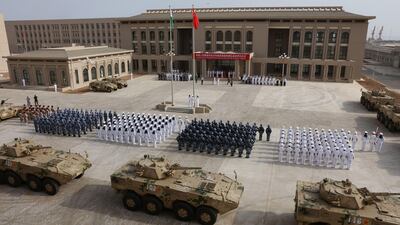Donald Trump made a speech about Afghanistan last week that was so full of contradictions it was incoherent. It authorised more troops but did not mention how many. It spoke of victory but did not say how it would be achieved. It used the word "strategy" without any hint that a plan lay behind it. But it also did something quite striking. It reframed America's relationship with Pakistan and India.
The speech sought to put pressure on Pakistan for the country's on-going and long-standing support of extremists. It did so by ratcheting up the tough rhetoric on Pakistan and by moving closer to India and seeking its involvement in addressing the critical problems of the region, a move guaranteed to further anger Pakistan.
It was not handled gracefully, but it was long overdue. Pakistan has been playing a dangerous double game with extremists and the West for a long time. Nothing has persuaded them to dial it back, in part because no leader in Pakistan ever speaks for the whole highly factionalised government. Further, India, the world’s largest democracy, is a much more natural ally of the US, a stalwart on terrorism, and a critical leg of America’s Indo-Pacific regional strategy. (Mr Trump gets credit for referring to the region using that term rather than Asia-Pacific, the standard US formulation that underplays the vital role of the sub-continent in assuring regional balance.)
_____________________
More from Opinion
Afghanistan is the US's new Vietnam
Trump's "path forward" in Afghanistan is a rebrand not a step ahead
_____________________
But the move carried with it a hidden risk that has yet to be widely discussed. When one speaks of the Indo-Pacific region and balance, of course, the principle counter-party in that balance is China, America's most important rival in the region. China is also once again involved in a stand-off with India regarding border issues in the Himalayas. As it happens, China is also an increasingly important player in the greater Middle East: as a top trading partner, as a vital voice on issues from the Iran nuclear deal to chemical weapons in Syria, and even as a growing military presence with the new base in Djibouti. Another is being contemplated in Pakistan.
In fact, China has placed its bets very clearly. Its largest embassy in the world is in Pakistan. It has committed to infrastructure links with Pakistan worth more than US$45 billion. It sees Pakistan as a vital ally versus India and a vital path to the Middle Eastern resources upon which its economy depends.
For that reason, when the US decided to increase pressure on Pakistan, it was also inviting greater tension with China and pushing those two nuclear powers closer together. While the decision to go after Pakistan was probably the right one, managing that pressure in a way that doesn’t have much greater and more grievous geopolitical consequences will take a great deal of diplomatic skill and attention, or it is likely to deepen faultlines and invite unintended consequences.
_____________________
More from David Rothkopf
The old power relationships are fading. Welcome to the new world
Why the North Korea crisis has serious implications for the Middle East
_____________________
Unfortunately, diplomacy is not a top priority for the Trump administration. Not only does the current US president lack a single diplomatic cell in his body, but he has weakened the state department by failing to fill key positions and threatening to cut funding for key programs. It is a direction that undercut some of the key pronouncements Mr Trump made regarding Afghanistan about seeking reform and political progress and economic development. It resonated especially given the decision made earlier this year to unceremoniously shutdown the state department office that was dealing with Afghanistan and Pakistan issues, the office that had precisely the capacity most essential to support the president's remarks last week.
When that office was set up, its first occupant, Richard Holbrooke, argued that in order to do the job in Afghanistan and Pakistan, he should also be given responsibility for managing the US relationship with India. The idea was ultimately shot down because it was seen as potentially too provocative to both sides in the India-Pakistan long-term rivalry. That was a reflection of the kind of strategic thinking that the Trump statement appeared to lack. Of course, it also resonates that right now there is no senior official in the entire US government with the diplomatic skill or sense of history that Richard Holbrooke brought to his work.
The lack of big picture thinking, the lack of a commitment to diplomacy and the lack of diplomatic skill and leadership are all the factors that are likely to make Trump’s Afghanistan goals harder to reach. That such shortcomings are likely to negatively impact the most important bilateral relationship in the world, between the US and China, and by extension China’s choices as it increasingly becomes one of the most important players in the greater Middle East make what was not said during Mr Trump’s speech potentially more important than the actual text or tone of his remarks.
David Rothkopf is CEO of The Rothkopf Group, a columnist for the Washington Post, a visiting scholar at the Carnegie Endowment for International Peace and most recently author of The Great Questions of Tomorrow

